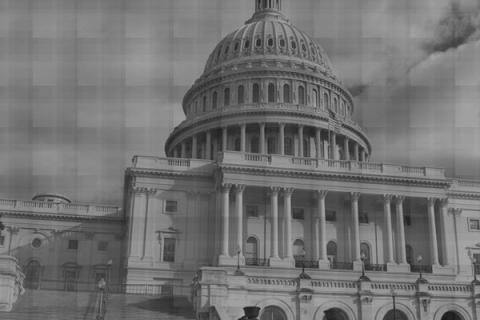
Scandals over the Internal Revenue Service's targeting of conservative groups and the seizure of AP phone records still simmer. With that in mind, the number two Democrat in the U.S. Senate suggested there should be a media shield law for traditional journalists.
Appearing on Fox News Sunday, Illinois U.S. Senator Dick Durbin said:
"Here's the bottom line: The media shield law, which I'm prepared to support . . . still leaves an unanswered question . . . What is a journalist today, in 2013? We know it's someone who works for Fox or AP. But does it include a blogger? Does it include someone who's tweeting? Are these people journalists and entitled to constitutional protection? We need to ask 21st Century questions about a provision in our Constitution that was written over 200 years ago."
In the context of the interview, Durbin did not offer any clarification to his comments about journalists, bloggers, and the First Amendment. The core of his comments seemed to say that traditional journalists have protections under the U.S. Constitution, but non-traditional ones might not.
Conservative columnist Michelle Malkin tweeted her interpretation of Durbin's comments:
https://twitter.com/michellemalkin/status/338660242273484801
A writer at FreeRepublic.com asserted:
"Journalism is not an identity or a guild, but an action and a process -- anyone engaged in that activity must be treated equally before the law."
The media shield law Durbin mentioned is a proposed law from New York U.S. Senator Chuck Schumer that he originally introduced in 2009. The previous bill "would require prosecutors to exhaust other methods for finding the source of the information before subpoenaing a reporter, and would balance investigators' interests with 'the public interest in gathering news and maintaining the free flow of information."
Schumer's bill included exemptions for perceived threats to national security, so it is difficult to see how it would have protected James Rosen. Rosen is the Fox News reporter whose e-mails were seized after he reported information from a source who had worked in the State Department. Schumer's 2009 bill never received a vote in the Senate.
Durbin's proposal highlights increased tension between the old media and new outlets such as blogs and online newspapers. It also raises concerns about creating certain classes of citizens. In this case, it applies to journalists. In Durbin's telling, traditional journalists could receive more protection from government surveillance than a blogger.
